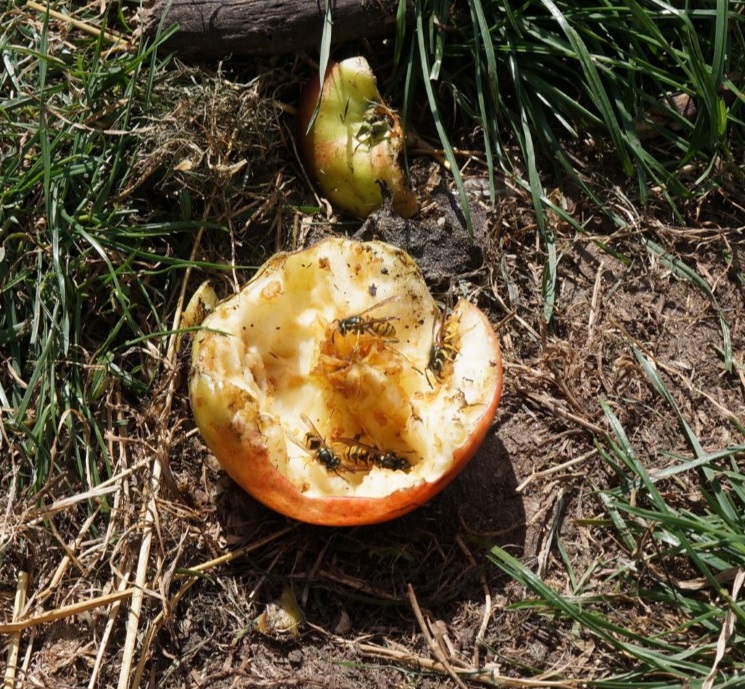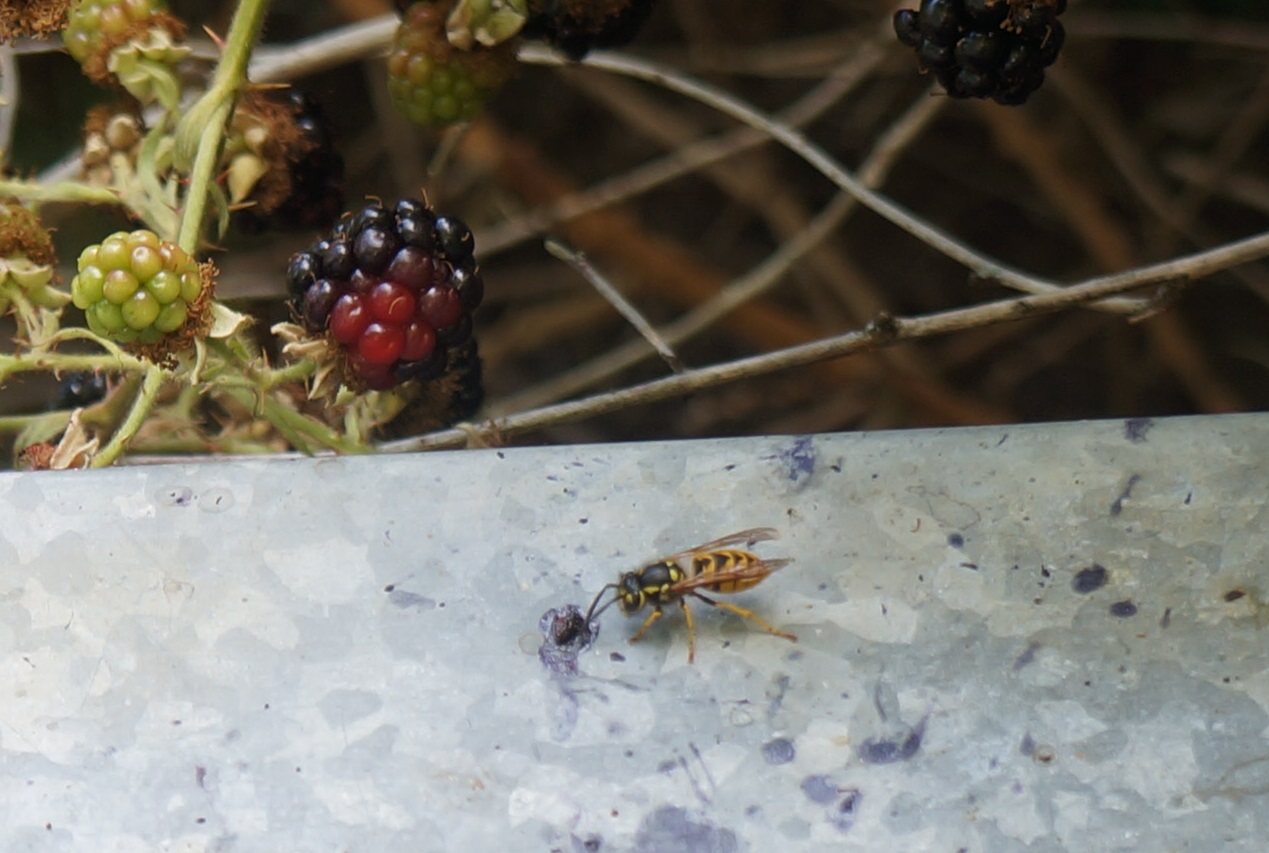- Stay Connected
 Abraham Lincoln
If given the truth, the people can be depended upon to meet any national crisis...
Abraham Lincoln
If given the truth, the people can be depended upon to meet any national crisis...
 Guildford news...
for Guildford people, brought to you by Guildford reporters - Guildford's own news service
Guildford news...
for Guildford people, brought to you by Guildford reporters - Guildford's own news service
Beekeeper’s Notes: Spare The Wasps
Published on: 1 Sep, 2019
Updated on: 1 Sep, 2019
Hugh Coakley
Worplesdon beekeeper
It’s coming to the end of the beekeeping season now. Honey has been taken from any hive that can afford to spare it and we are preparing the colonies for the winter.
The queen is still laying, at a reduced rate after her peak in June and July, and the bees are still foraging; there is still plenty of pollen and nectar about.
And on cue, as autumn starts, the wasps are at it again, pestering picnics and sticky food eaters in great numbers. By all accounts it has been a bumper year for them because of the warm weather.
You can see them on fallen fruit, nipping holes into apples on the trees and sniffing around the blackberries, anything where they get a scent of sweetness.
They are as persistent as a single issue campaigner. Swearing at them or swatting doesn’t work, I’ve tried it. They are so cheeky, or is it desperate, diving into the beehives to grab the honey as soon as they see an opening.
It is always this time of year that they are most noticeable. But why?
Bees are preparing for the winter but wasps aren’t. They are having a final fling. The wasp workers are no longer having to gather insects and other scavenged protein foods to feed the colony’s young. They have done their job and are now intent on getting carbohydrates, anything sweet will do, for their own consumption.
This burst of activity doesn’t last for long. The intricate wood pulp nests will be abandoned and the wasps, except the queens who will hibernate ready for next year, will be dying off soon.
There is an estimated 9,000 wasp species in the UK, a huge number. Some ask, what are wasps for? Do they have a useful purpose? Wouldn’t it be one species we could happily hope could become extinct.
Wrong. It has been estimated that UK wasps could eat as much as 14,000 tonnes of insect prey a year, which can be helpful to farmers and gardeners. And wasps are pollinators as well.
Annoying they can be but they are also beautiful, agile, wonderfully effective and they have been around for millions of years.
So, put away the fly spray and spare a thought for the poor old wasp.














Recent Comments